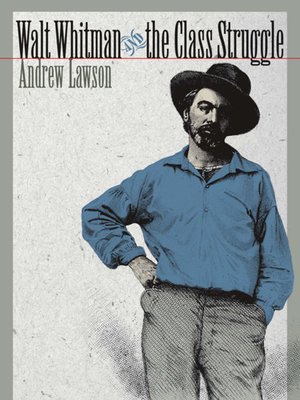
Sign up to save your library
With an OverDrive account, you can save your favorite libraries for at-a-glance information about availability. Find out more about OverDrive accounts.
Find this title in Libby, the library reading app by OverDrive.



Search for a digital library with this title
Title found at these libraries:
| Library Name | Distance |
|---|---|
| Loading... |
By reconsidering Whitman not as the proletarian voice of American diversity but as a historically specific poet with roots in the antebellum lower middle class, Andrew Lawson in Walt Whitman and the Class Struggle defines the tensions and ambiguities about culture, class, and politics that underlie his poetry.Drawing on a wealth of primary sources from across the range of antebellum print culture, Lawson uses close readings of Leaves of Grass to reveal Whitman as an artisan and an autodidact ambivalently balanced between his sense of the injustice of class privilege and his desire for distinction. Consciously drawing upon the languages of both the elite culture above him and the vernacular culture below him, Whitman constructed a kind of middle linguistic register that attempted to filter these conflicting strata and defuse their tensions: "You shall not look through my eyes either, nor take things from me, / You shall listen to all sides and filter them from yourself." By exploring Whitman's internal struggle with the contradictions and tensions of his class identity, Lawson locates the source of his poetic innovation. By revealing a class-conscious and conflicted Whitman, he realigns our understanding of the poet's political identity and distinctive use of language and thus valuably alters our perspective on his poetry.







